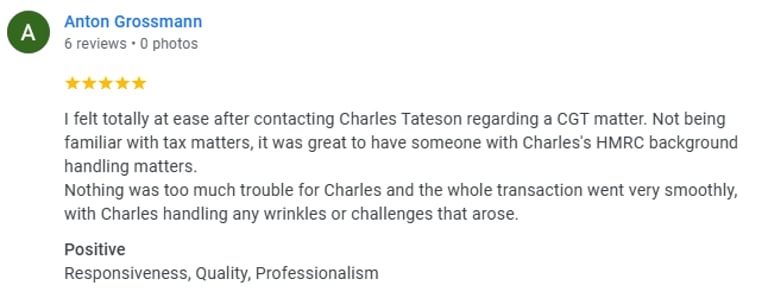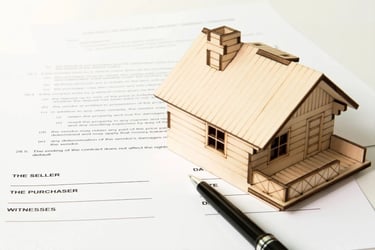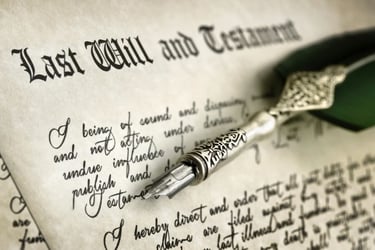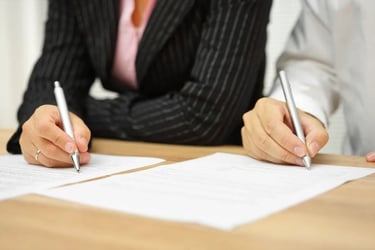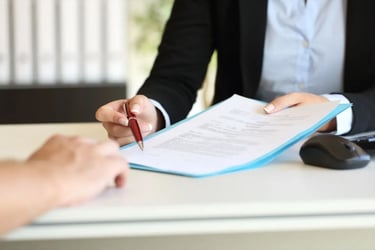What are Capital Gains Tax rates in the UK?


Do you need to know what the current Capital Gains Tax rates are in the UK this tax year? Our guide below will show you everything that you need to know.
(Non-UK callers may need to call +44 207 101 3845 if you cannot connect to our 0800 number)
Call: 0800 0016 878 - Email: info@thetaxfaculty.co.uk

Why might I need to pay Capital Gains Tax?
You may need to pay Capital Gains Tax (“CGT”) if you make a profit from selling assets that you own – this can include:
Residential Property (for example, a home)
Commercial Property (for example, a factory or a shop)
Shares
Jewellery
Art and Antiques
Cryptocurrencies
Capital Gains Tax rates in the UK for the tax year ended 5th April 2025
The Capital Gains Tax rates vary based on your income tax band and the type of asset you are selling. Below, we break down the CGT rates for different individuals and asset classes in the UK for the tax year ended 5th April 2025.
For the tax year ended 5th April 2025 capital gains tax rates are as follows:
The rate of Capital Gains Tax for residential property in the UK is currently 18% at the basic rate and 24% at the higher rate.
The rate of Capital Gains Tax for commercial property and other assets that are not residential property will depend on the date on which the disposal of the asset took place.
Up to and including 29th October 2024, disposals of these assets were taxed at 10% at the basic rate and 20% at the higher rate.
From 30th October 2024 onwards, these assets are charged at 18% at the basic rate and 24% at the higher rate, aligning the rates to the same rates as residential property.
There are further rules and rates for gains from "carried interest" which we deal with in this article.
The amount of CGT that is paid at the basic rate will also be dependent on a number of factors and it is a common mistake to think that a basic rate taxpayer will pay CGT at the basic rate on all capital gains. See our example to find out more.
There are also a number of exemptions and allowances that can reduce the amount of CGT that is payable.
For example, if you have lived in the property as your main home, you may be entitled to Principle Private Residence ("PPR") relief when you sell the property. If you only lived there for some of the time that you owned it, you’ll still be entitled to a proportion of the relief so that you can reduce the Capital Gains Tax that may be due.
In most cases, you will also be eligible for a tax-free allowance of £3,000 (of £6,000 if the asset was sold in the tax year ending 5th April 2024) per person per year, called the Annual Exempt Amount ("AEA"), which means that if your gains fall below this amount, you may not need to pay any CGT.
If you were unlucky enough to make a loss when selling an asset, you can declare this loss to HMRC and if the loss is allowable for tax purposes, you will be entitled to tax relief against other capital gains. This is called allowable losses, however, there is a slight catch. Beware, you a loss is not allowable if:
You’ve sold or gifted the asset to a spouse or civil partner
You’ve sold or gifted the asset to a family member
You’ve sold or gifted the asset to a connected person (this can be complex – contact us for more information)
How is CGT Calculated?
The amount of CGT you will need to pay on the sale of an asset will depend on a number of factors, including:
The amount you bought the asset for (or in some circumstances the market value of the asset when you acquired it),
The amount you sold the asset for (or in some circumstances the market value of the asset when you sold it or gave it away),
Any costs associated with buying or selling the asset, such as estate agent fees or legal fees, and
Any improvements you have made to the asset during the period of ownership.
How Can We Help?
At The Tax Faculty LLP, we understand that CGT can be confusing and complex, especially when it comes to property. That's why we are here to help. Our team of experts can provide you with tailored advice and guidance on all aspects of CGT, including how to minimise your liability and take advantage of any exemptions or allowances that may apply to your situation.
If you are thinking of selling a property and want to make sure you are not paying more CGT than you need to, contact us today for a free consultation. We can help you navigate the complexities of CGT and ensure that once the property has sold that all filing is completed within the 60-day time limit.
If you require assistance with the CGT consequences of the sale of a property, please feel free to contact us on info@thetaxfaculty.co.uk or call us free on 0800 0016 878 for a free initial consultation.
Our Contact Us page has more options for you to get in touch.
CGT Rates Example:
Let's consider Mrs. A who has capital gains of £67,000 on the sale of a UK residential property. After deducting the £3,000 annual exemption, this gives Mrs. A a capital gain of £64,000.
Mrs A earns £35,000 before tax during the year of sale of the property and there are no other factors which affect her tax position.
To calculate the basic rate band which Mrs A has remaining, we take the £35,000 earnings from the £50,270 basic rate band limit, leaving £15,270.
Mrs A is then charged to CGT as follows on the taxable amount of £64,000:
Basic Rate CGT: £15,270 x 18% = £2,748.60
Higher Rate calculation: £64,000 - £15,270 = £48,730
Higher Rate CGT: £48,730 x 24% = £11,695.20
Total CGT: £2,748.60 + £11,695.20 = £16,393
Mrs A has a CGT liability of £14,443.80.
Please remember that this example is for illustrative purposes only and that in a real scenario there would likely be other factors to consider.
Our Services
We have extensive experience in reducing the Capital Gains Tax due on the sale of UK property and land for non-UK residents.
When you come to sell an asset that was inherited or received as a gift, there may be complex Capital Gains Tax issues to consider.
When assets are split or sold as the result of separation or divorce, there are specific Capital Gains Tax rules that must be considered.
If you give an asset to a family member or friend, there may be Capital Gains Tax consequences. See how we can help you in such a situation.
When selling an asset, there are a number of reliefs available which may reduce, exempt or delay the Capital Gains Tax due.
With HMRC changing the rules on reporting and paying Capital Gains Tax on residential property, we can help you to get things right.
Contact Us
Contact us today on freephone 0800 0016 878 for a free consultation on all Capital Gains Tax issues, or fill out the handy form below and we'll get back to you as soon as possible.
Alternatively, you can email us at info@thetaxfaculty.co.uk or complete the handy form below.
(Please note, non-UK callers may need to call 0207 101 3845 if your line cannot connect to our 0800 number)
Feel free to contact us through WhatsApp - we accept calls and messages.
Simply click the WhatsApp button below:




